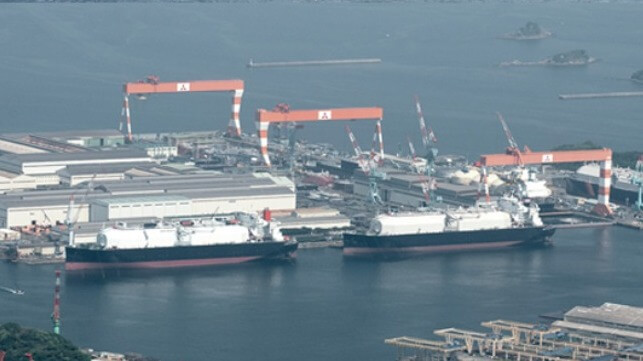Mitsubishi Heavy Industries Sets Up Dedicated Decarbonization Division

Japanese conglomerate Mitsubishi Shipbuilding Co. has established an independent unit to spearhead and oversee its ambitious plans to promote a carbon neutral shipping industry.
Its new Marine Decarbonization Business Development Group will consolidate all operations geared at decarbonizing the maritime sector. The new entity, which responds to the energy transition strategy promoted by MHI, will consolidate a range of functions ranging from technology development, market research to formulation and implementation of business strategies.
“We have received numerous inquiries from customers regarding growth sectors such as LCO2 carriers and ammonia fuel vessels and we need a dedicated organization to coordinate the technological innovation and handle this business,” said Toru Kitamura, President and CEO of Mitsubishi Shipbuilding.
He added the establishment of the decarbonation unit will accelerate the pioneering of new businesses that utilize and apply oil and gas technologies together with conventional shipbuilding technologies, giving the company "organizational ambidexterity.’"
Mitsubishi Shipbuilding has built more than 5,000 vessels, including coal carriers, oil tankers, and liquified gas carriers, and it says that it wants to bring that expertise to the next generation of energy-carrying ships. Demand is expected to increase for clean energy carriers for ammonia and other materials, as well as LCO2 carriers to support reverse logistics for fossil fuels.

that matters most
Get the latest maritime news delivered to your inbox daily.
In November last year, the company teamed with Mitsui O.S.K. Lines to study multiple hull forms for liquefied CO2 carriers, which may play a key role in the decarbonization transition.
Shipping delivers about 90 percent of global trade, and it is working to address increasing public scrutiny of its role as one of the world's biggest sources of carbon dioxide. Studies show the industry emits around 940 million tons of CO2 annually, or about three percent of global greenhouse gas emissions.
